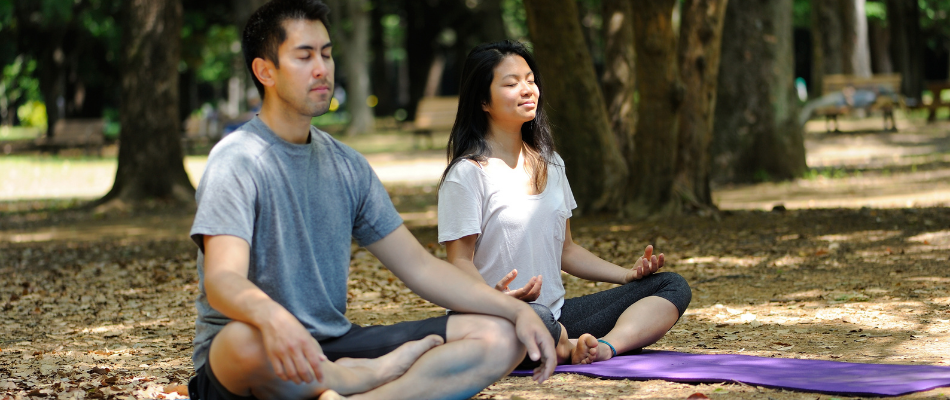Much has been said about emotional wellbeing and its connection to our ongoing wellness and happiness, perhaps because it is the most ‘visible’ of the mental wellbeing pillars. If someone cries, for example, we say that they are ‘emotional’. But emotional wellbeing is about more than just ‘being emotional’ and we will explore this in today’s article.
A quick reminder: emotional wellbeing refers to our ability to produce positive emotions, moods, thoughts, and feelings. It also refers to our ability to confront stressful situations and how resilient we are under pressure.
At this stage of our engagement, we can agree that the lives we live and the daily exposure we must face, pressure, and stress have been elevated through what we have gone through. These uncertainties have manifested differently for everybody and how we dealt with it as well. But before we talk about how we can improve our skills when emotions are getting the best of us, let’s have a look at the difference between thoughts, moods, emotions, and feelings.
Thoughts reflect how you think, beliefs reflect how you feel, and behaviour reflects how you react on an everyday basis. Moods and emotions are affected by our thoughts and are influenced by our beliefs. For example: if you think (thoughts) that it is bad to throw trash out of your car window, it is probably because you believe that littering is wrong and when you see someone doing it, you probably react by shouting at them, because it makes you angry (which is an emotion). So, as you can see from the example, there is a constant link between our emotions and our thoughts.
Being in a continuous negative emotional state may have serious consequences for your overall wellness. It can cause lower immunity (as stress weakens the immune system); hypertension (long-term stress worsens blood pressure); increased risk of mental illness, relationship issues, work related issues, and you will have trouble concentrating.
Taking care of our emotional wellbeing is therefore critical to our overall wellness and, contrary to popular belief, it is something that you can manage through practice.
Build emotional intelligence
Emotional intelligence is our ability to recognise, understand and use our emotions positively to cope with managing relationships and communicate effectively. There are four cornerstones to emotional intelligence which explains how it could be used practically:
- Self-awareness – know and recognise your own emotions and how they are impacted
- Self-management – manage your emotions through controlling or redirecting negative or destructive impulses
- Social-awareness – consider others’ emotions within their context and situations
- Relationship management – managing emotions within a social construct.
There are many tools and techniques which could be used to build emotional intelligence, which will be shared in a later article.
Build stress coping skills
Coping mechanisms are very personal. How we deal with or relax depends on what you find comforting. This could range from multiple activities such as: exercising, deep breathing exercises, meditation, yoga, connecting with friends, and so on. What is essential is to find YOUR activity and practice it.
Practise mindfulness
Mindfulness refers to your ability to be fully present, to be aware of what you are doing, and where you are and to not allow the outside world to distract you from your purpose. Practising mindfulness could, according to the latest research, rewire your brain to respond to the outside world more productively. It assists in reducing stress, enhancing performance, gaining insight and awareness and increased attention span. It involves techniques like meditation and practising sports.
Be conscious of your moods
Your mood can be influenced by many things: from stressful situations to eating something that causes your blood sugar to spike. It thus stands to reason then, that like with a good diary, keeping a diary of your emotions might also be an activity you can engage in to enhance your wellbeing. This could include noticing (or writing down) when you get angry and analysing why the situation caused that level of aggression. This will give you insight into what triggers your aggression and, by practising emotional intelligence, you will be able to manage that more effectively.
Embrace your emotions
Emotions are a natural human experience. We feel and express that through our emotions. Negative emotions are not always negative – they might be experienced as such by others, but they provide you with insight. When you analyse the causes, you will allow yourself the opportunity to grow. And growth is always good.
Invest in sleep
The better you sleep, the better you feel when you are awake. Sleep is essential to our wellbeing. Improve your sleep and you improve your overall health. Bottom line: sleep keeps us healthy; it gives your body the opportunity to repair, restore and re-energise.
Find joy in what you love
Finding what makes you happy and allowing yourself time to engage in that joy adds to your wellbeing. Prioritise yourself, your joy and the positive effects on your wellbeing will be priceless.
Each of the mentioned activities are continuous. We absorb experiences and we can differentiate which we take with us and which we can leave behind and move beyond. Each of these teach us something and it is your responsibility to learn from them.
Read also:
- 7 Ways to Improve Mental Wellness - February 15, 2022
- How is Artificial Intelligence Transforming Business? - February 15, 2022
- The Joy of Wellness: Psychological Wellbeing - February 2, 2022




1 Comment
Nicе post. I ᴡas checking continuously this weblog and I’m impressed!
Very useful information particularly the last part :
) I maintain sսch informatiߋn а lot. I was
seeking this particular info for a very lengthy time.
Thanks and bеst of luck.